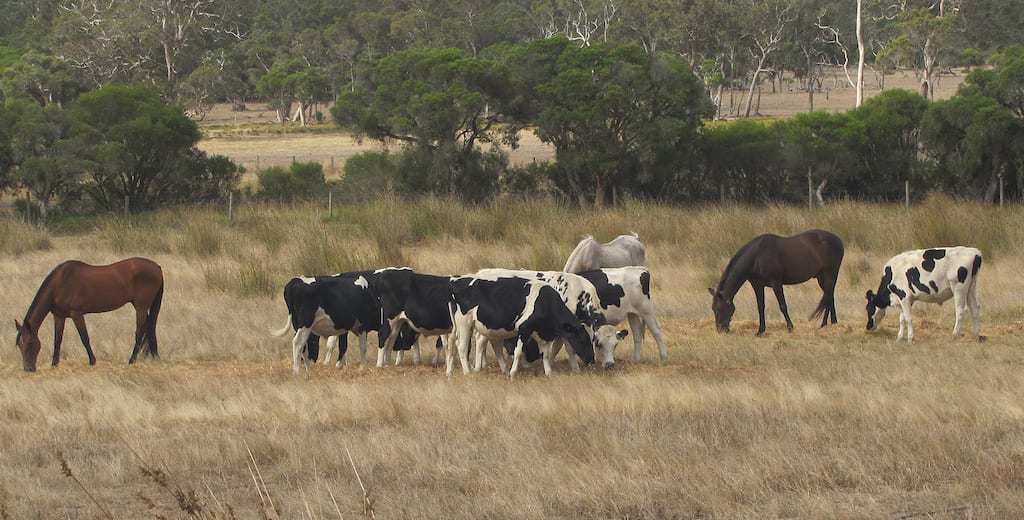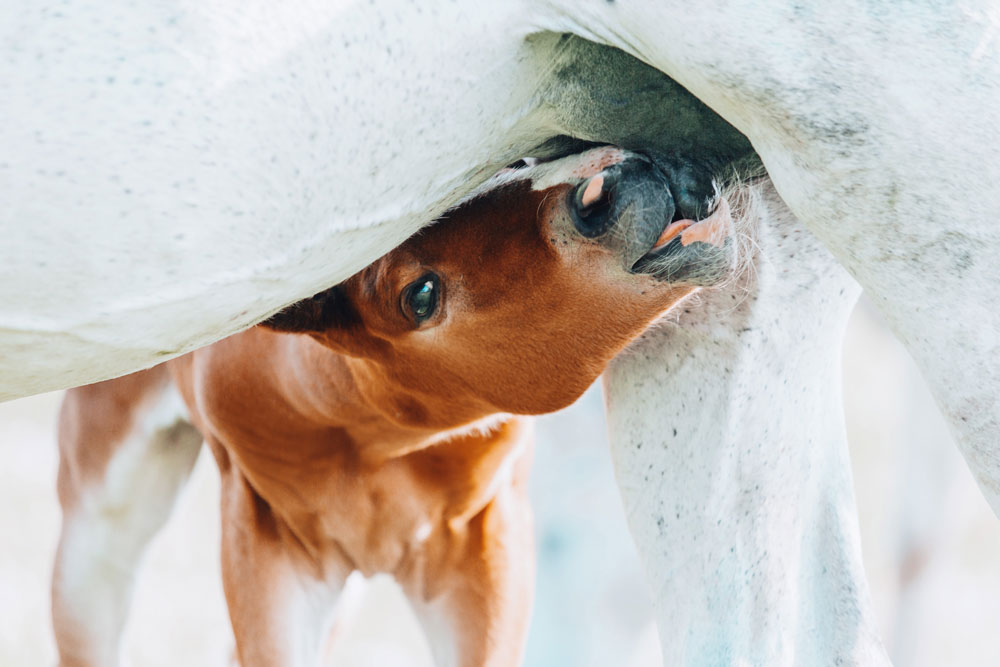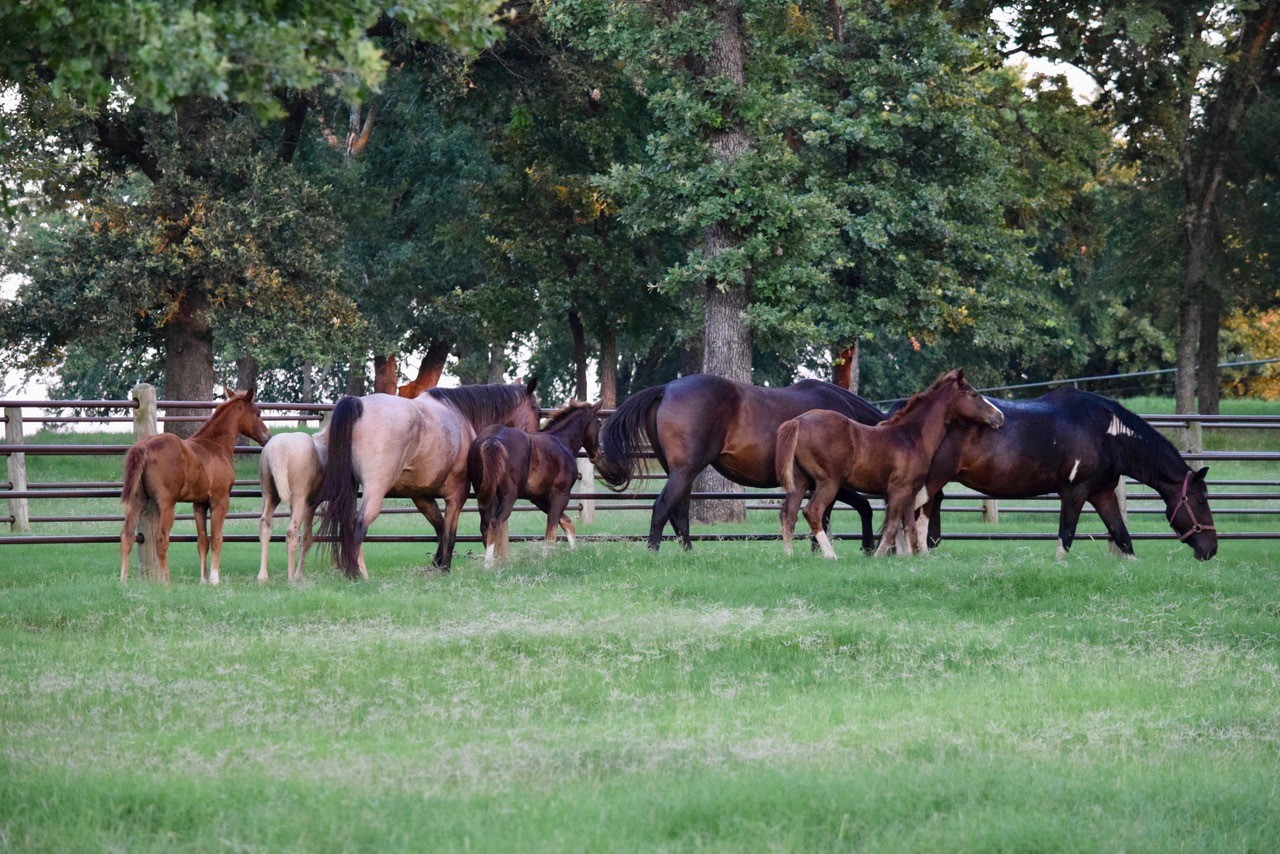Horse owners are known for being picky about hay selection, and we literally end up paying the price for higher quality hay than our livestock-raising neighbors. The idea that our more delicate horses “need higher quality hay than cattle” is common and oft-repeated among horse people both in barn aisles and online.
As with most myths, this one originates from a seed of truth that has been inflated and changed over time. While it is true that horses digest fibrous foods less efficiently than their ruminant counterparts, a horse’s unique needs dictate how much nutrition it actually requires from hay. Therefore, it’s a myth that all horses always require higher quality hay than cattle.
The Difference Between High and Low Quality Hay
It’s critical to note that what we mean by “high quality hay” is hay that is higher in nutritional value. Most horse people prefer to see our horses happily munching a greenish-yellow, soft, leafy flake of hay as opposed to one that is brown, hard, and stemmy.
The nutritional value of hay is determined by the maturity of the grasses and the legumes when they are cut and harvested. The stems are mostly fiber, while the leaves contain a full range of nutrients. In early blooming stages, grasses, etc., provide more digestible energy and protein and less fiber. As they mature, however, they increase in fiber and decrease in other nutrients. Thus, a young, leafy hay does provide more nutrition than a mature, stemmy one.
However, both are equally safe to feed horses (when clean and properly managed) and play varying but equal roles in feeding programs depending on each horse’s individual needs.
Hay that is “low quality” because it hasn’t been managed well and thus is dusty, moldy, contaminated with fungus or other substances, or contains things like thistles or blister beetles is NOT safe to feed any animal, including horses or livestock.
Horses That May Actually Benefit from Lower Quality Hay
As we explained in detail in our Nutrition for Horses series (get the full e-book here), there are a variety of factors that influence each horse’s unique nutritional requirements. These include breed, body type, age, metabolism, activity level, usage (such as for breeding vs. performance vs. leisure), and health. A still-growing 2-year-old thoroughbred racehorse in training will certainly have much greater energy requirements, and thus need a high quality hay. Conversely, a middle-aged easy-keeping Quarter Horse going on trail rides on the weekends likely needs a lot less.
The simple act of chewing forage continuously throughout the day (and night), and the steady trickle of fibrous feed through the GI tract, is essential to the horse’s overall health. Going for hours without food and only receiving a couple flakes of hay twice a day is detrimental to digestive health and increases the risk for digestive imbalance, hindgut acidosis, stomach and hindgut ulcers, and other conditions. At the same time, obesity is also responsible for a range of serious health problems in horses.
To put it all together, feeding a hay lower in nutritional value is a smart way to allow an easy-keeping horse the all-important free access to forage while not overdoing it on the calorie count.
And that’s just one obvious example of how a lower quality hay actually provides serious benefit for the health of some horses. Just be sure to have hay tested and also provide a ration balancer to ensure the horse is still receiving all the vitamins and minerals he needs.
Evaluating Your Horse’s Needs and Feed Program
Wondering if your horse could benefit from a hay that provides a little less on the nutrition scale? Download our free Nutrition for Horses e-book to learn how to evaluate your horse’s unique needs and to get some tips on how to best tailor your feed program.
Learn what your horses need, get your hay tested, and consult your veterinarian or an equine nutritionist to develop the ideal feed plan.
Photo Herbivore Co-Existence – Red Moon Sanctuary, Redmond Western Australia by Brett and Sue Coulstock licensed via CC2.0 (cropped).




